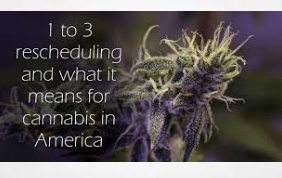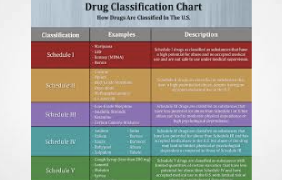PORTLAND, Ore. – The Oregon Liquor and Cannabis Commission (OLCC) today took an initial step to tighten up on tax compliance by OLCC licensed recreational marijuana retailers. The action by the Board of Commissioners, during its monthly Commission meeting on Thursday, June 15, 2023, comes after Governor Tina Kotek directed the OLCC to work with the Oregon Department of Revenue (DOR) to get licensees paid up on delinquent taxes, or as a last resort to take away their licenses.
The Commissioners also heard an update on the post-pandemic status of the hospitality industry, agreed to the Governor’s request to not move forward with an additional 50 cents surcharge on distilled spirits and appointed three new small business owners to operate liquor stores around the state.
Despite its recent emergence as a legal business, the cannabis industry has one of the worst rates of tax compliance among Oregon businesses. According to DOR the rate of unpaid taxes by cannabis retailers amounts to about 9% of what’s owed of the state’s marijuana sales tax.
So today, in partnership with DOR, the Board of Commissioners approved temporary rules requiring marijuana retailers to obtain a Certificate of Tax Compliance from the DOR; the certificate will now be required as a condition for acquiring or renewing a cannabis retailer license, as well as for changes of ownership or adding someone to a license.
The OLCC will undertake permanent rulemaking this summer to develop tax requirements to reinforce and build on the temporary rule; the agency will work with DOR, the marijuana industry and other stakeholders to shape the permanent rules. The temporary rule takes effect June 16, 2023. Information on the tax compliance program can be found on the OLCC website.
Last week, Governor Kotek asked the Board of Commissioners to hold off on formally considering the distilled spirits surcharge. The Governor reasoned that the surcharge was not needed due to a better-than-expected revenue forecast and a concern that the money raised would go to the state’s general fund rather than directly to mental health and addiction services, as originally intended. The board took no further action on the matter.
In other business, the Board approved new liquor store agents for stores near the central coast, and in the Rogue Valley. Gurpreet (Gary) Uppal, who will take over operation of the Toledo liquor store, had previously grown sales by 40% when operating the Lincoln City liquor store. The Board appointed Amrik Bagri as the permanent retail agent for the Jacksonville liquor store, which he had been operating on a temporary bases. Finally, the Board appointed Joanna (Aśka) Kubiak Horton to operate the Medford store, taking over from her husband who had stepped aside because of health issues.
The Oregon Restaurant and Lodging Association (ORLA) reported to the Board that the hospitality industry is steadily building back after the pandemic. In 2022, tax receipts generated by travel spending were up 21% compared to 2021, generating $643 million in state and local taxes. According to ORLA, the hospitality industry is responsible for about 10% of all employment in Oregon with about 197 thousand jobs; that’s off from the all-time peak industry employment of about 224 thousand jobs back in August, 2019.
The Commission also ratified stipulated settlement agreements for alcohol and marijuana licensees. Detailed information on the specific cases below can be found on the OLCC website:
Marijuana Stipulated Settlement Agreements
TOP SHELF WELLNESS CENTER (Retailer) in Phoenix, will pay a $4,935 civil penalty or serve a 26-day license suspension for two violations.
GROUND UP FARMS (Retailer) in Medford, will pay a $7,635 civil penalty OR serve a 37-day license suspension for two violations.
###

















